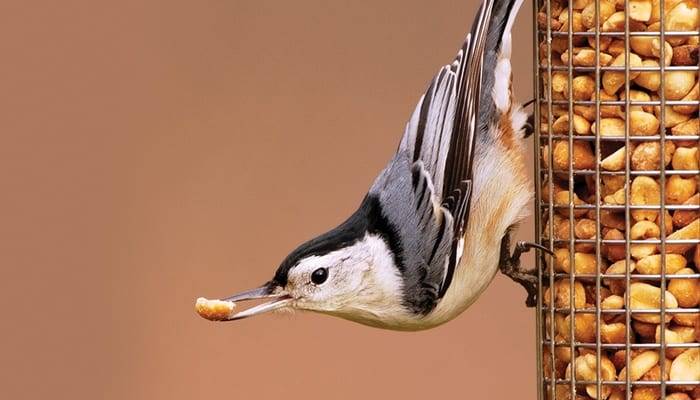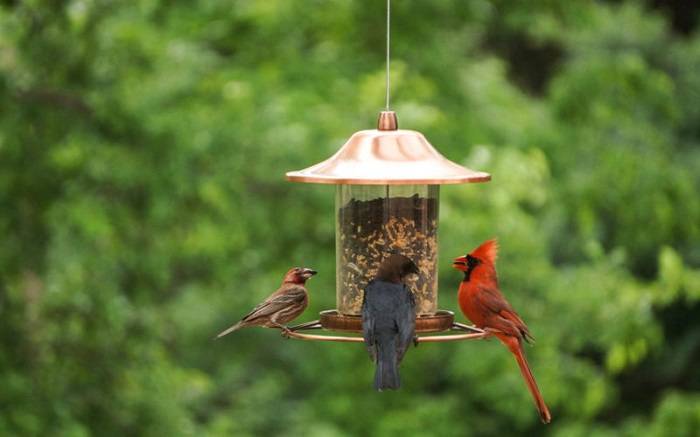Bird nuts are a popular and nutritious food option for garden birds, providing them with essential energy, protein, and nutrients to support their health and vitality. Available in convenient bulk quantities such as 25kg bags, bird nuts offer bird enthusiasts a cost-effective way to attract and feed a wide variety of avian visitors to their outdoor space. In this guide, we’ll explore the benefits of bird nuts, how to use them effectively, and tips for attracting a diverse array of bird species to your garden.
Understanding Bird Nuts
Bird nuts, also known as peanuts or peanut kernels, are a high-energy food source made from shelled peanuts. They are rich in fats, proteins, and oils, making them a valuable source of nutrition for garden birds, especially during the colder months when natural food sources are scarce. Bird nuts come in a variety of sizes and can be offered whole, chopped, or crushed to accommodate different bird species’ feeding preferences.
Benefits of Bird Nuts
There are several advantages to using bird nuts as a food source for garden birds:
- Nutritional Value: Bird nuts are rich in fats, proteins, and oils, providing birds with essential nutrients and energy to support their health and well-being.
- Versatility: Bird nuts are attractive to a wide range of bird species, including tits, finches, woodpeckers, and nuthatches, making them a versatile option for bird feeding.
- Long-lasting: Bird nuts have a long shelf life and can be stored in bulk quantities, such as 25kg bags, for extended periods without spoiling, making them a convenient and cost-effective choice for bird enthusiasts.
Using Bird Nuts Effectively
To make the most of bird nuts in your garden, consider the following tips:
- Offer Variety: Provide a mix of whole and crushed bird nuts to accommodate different bird species’ feeding preferences. Some birds may prefer whole nuts, while others may find crushed nuts easier to eat.
- Use Suitable Feeders: Offer bird nuts in feeders designed specifically for nuts or peanuts, such as mesh or wire feeders with small openings that prevent birds from taking large pieces.
- Monitor Consumption: Keep an eye on how quickly birds are consuming the bird nuts and adjust the amount you offer accordingly. During periods of high bird activity, you may need to replenish the feeders more frequently.
Attracting a Variety of Birds
Bird nuts can attract a wide range of bird species to your garden, including:
- Tits: Blue Tits, Great Tits, and Coal Tits are frequent visitors to bird nuts feeders, using their agile feet and sharp beaks to extract the tasty treats.
- Finches: Goldfinches, Greenfinches, and Chaffinches may also visit bird nuts feeders, especially during the winter months when natural food sources are scarce.
- Woodpeckers: Great Spotted Woodpeckers and other woodpecker species are attracted to bird nuts, using their strong bills to peck away at the nutritious snacks.
Related Post
Cracking the Mystery: How Long Does It Take for Duck Eggs to Hatch?
Unlocking the Egg-Laying Mystery: When Do Ducks Start Laying Eggs?
Choosing the Perfect Pet Duck: A Comprehensive Guide
Bird nuts offer a nutritious and convenient food source for garden birds, providing them with essential energy and nutrients to support their health and vitality throughout the year. By offering bird nuts in your garden and using them effectively in suitable feeders, you can attract a diverse array of bird species and enjoy the beauty and excitement of birdwatching in your own backyard. So, stock up on bird nuts in bulk quantities like 25kg bags, set up your feeders, and prepare to welcome a feathered feast of visitors to your outdoor space.





